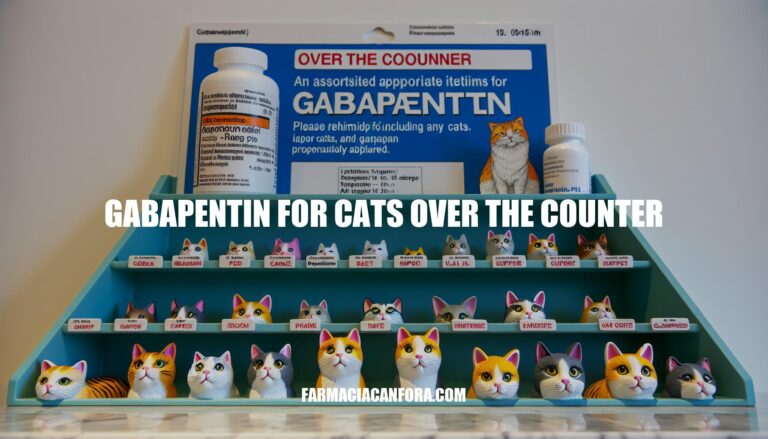


Gabapentin is a medication primarily used to manage pain and seizures in humans, but it’s also commonly prescribed for cats. In felines, gabapentin is often used to alleviate chronic pain, such as from arthritis, and to reduce anxiety, especially during vet visits or travel. While it is not available over the counter and requires a prescription from a veterinarian, it can be a helpful tool in managing your cat’s comfort and stress levels.
Gabapentin for cats is not available over the counter. It is a prescription medication and must be prescribed by a veterinarian. This is because gabapentin is used to treat specific conditions such as pain, anxiety, and seizures, and its use needs to be monitored by a professional to ensure the correct dosage and to manage any potential side effects.
Legally, purchasing gabapentin without a prescription is not allowed, as it is classified as a controlled substance in many regions. Always consult with a veterinarian before administering any medication to your pet.
Gabapentin is used in cats for several specific purposes:
Pain Management: Gabapentin is primarily used to manage chronic pain, especially neuropathic pain, which is pain associated with nerve damage or conditions like arthritis. It is less effective for acute pain but can be combined with other analgesics for better results.
Anxiety Reduction: Gabapentin is effective in reducing situational anxiety in cats. It is often prescribed before vet visits, during travel, or in other stressful situations to help calm the cat and reduce fear responses.
Seizure Management: While not commonly used as a primary treatment for seizures in cats, gabapentin can be used as an adjunctive therapy for difficult-to-control seizure conditions.
Other Conditions: Gabapentin is also used off-label for conditions like feline hyperesthesia syndrome, which involves heightened sensitivity and abnormal behavior.
Factors Influencing Dosage:
Always consult a veterinarian before administering gabapentin to ensure safety and efficacy.
Common Side Effects:
Rare Side Effects:
These side effects are usually short-lived and resolve within 10-12 hours. If you notice any severe or prolonged symptoms, it’s best to consult your vet.
Gabapentin is commonly used in cats for pain relief, anxiety, and as a sedative. However, it should only be used under veterinary guidance. Here are some key safety considerations:
Always consult your vet before giving gabapentin to ensure it’s safe for your cat’s specific health needs.
Gabapentin is not available over the counter for cats, as it requires a prescription from a veterinarian due to its controlled substance classification.
It’s used to manage chronic pain, anxiety, and seizures in felines, but must be monitored by a professional to ensure correct dosage and prevent potential side effects. Always consult with a vet before administering gabapentin to your cat, as incorrect dosages can lead to severe side effects.
Key safety considerations include liver and kidney function, pregnancy and nursing status, drug interactions, and allergies.
Gabapentin should only be used under veterinary guidance.